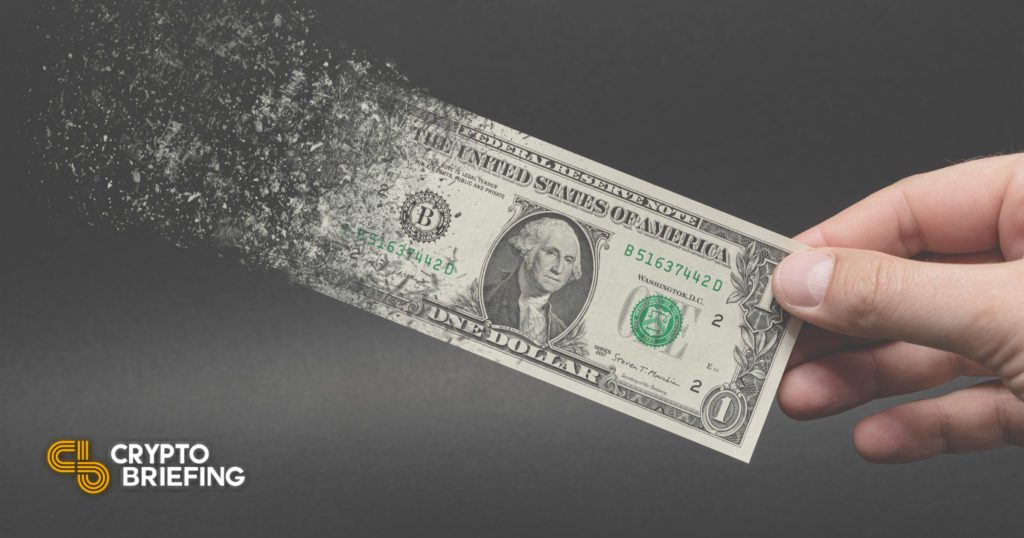
Shutterstock cover by SERSOLL
Prospects of Global Recession Rise as Inflation Hits Record 8.5%
The April CPI data shows the U.S. annual inflation rate at a four-decade high of 8.5%.
News of record-high inflation rates in the U.S. hit the streets today. According to April data from the U.S. Bureau of Labor Statistics, the year-on-year consumer price index sits at a 40-year record of 8.5%, raising concerns over a potentially impending global recession which could spell doom for risk-on assets like stocks and crypto.
Inflation Hits Four-Decade High of 8.5%
The inflation numbers published today fall largely in line with economists’ expectations.
According to the latest data published by the U.S. Bureau of Labor Statistics today, the consumer price index increased by 1.2% on the month in March, placing the current annual inflation rate in the U.S. at 8.5%—the highest since December 1981. Gasoline, food, and shelter indexes saw the highest increases in price, the Bureau said, with the gasoline index rising 18.3% in March and accounting for over half of the CPI’s increase. The energy index has risen 11% on the month, following a 3.5% increase in February.
According to a Reuters poll, the record-high inflation rates have fallen mainly in line with economists’ expectations, who anticipated the March CPI print to be 8.4%—only ten basis points off the official print. A combination of factors, including surging energy and commodity prices following Russia’s invasion of Ukraine, unprecedented money printing in response to the COVID pandemic, and supply chain issues caused by lockdowns in China, is widely believed to be the main culprit behind the rampant inflation.
To combat the rising prices—which affect the bottom line of everyone but especially that of lower-income individuals—the Federal Reserve raised interest rates for the first time in three years last month. It also signaled plans to raise interest rates seven more times and potentially begin aggressively unwinding its balance sheet by selling bonds and mortgage-backed securities back to the open markets by year’s end. This process, known as quantitative tightening, aims to shrink the circulating money supply within the economy in order to curtail consumer demand and consequently contain the accelerating inflation. However, experts fear that tightening the monetary policy amid increasingly uncertain geopolitical and macroeconomic conditions could slow down the U.S. economy and tip the world into a global recession. Historically, recessions or economic contractions have fared poorly for risk-on assets like growth technology stocks and crypto.
According to the co-founder of the crypto exchange BitMEX Arthur Hayes, crypto’s high correlation with technology stocks means that both asset classes could slump together due to central banks beginning to tighten liquidity aggressively. In a Monday blog post, he revealed that the worsening macro conditions could see the two largest cryptocurrencies, Bitcoin and Ethereum, fall to $30,000 and $2,500 by June. “I am a subscriber to Felix Zulauf’s research. He is so on-point. His general thesis is that the tightening of liquidity globally will lead to a deeeeep, short-term correction in global equities,” he said.
Today’s CPI print seems to have been already priced in by the crypto market, which saw no noticeable spikes in Bitcoin and Ethereum’s prices. At the time of writing, Bitcoin is trading around the $40,600 mark, while Ethereum is changing hands for $3,070. Both cryptocurrencies have slumped around 12.7% over the last seven days following the Fed’s announcement that it is considering an aggressive quantitative tightening policy.
Disclosure: At the time of writing, the author of this piece owned ETH and several other cryptocurrencies.
